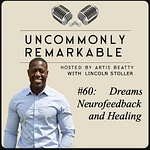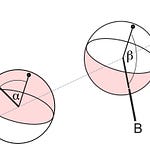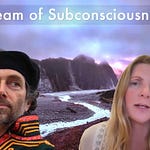“There is an old-fashioned word for the body of skills that emotional intelligence represents: character.”
― Daniel Goleman (1995, 285)
Emotional Intelligence
Daniel Goleman defines the four dimensions of emotional intelligence as,
self-awareness,
self-management,
social awareness, and
relationship management.
To be a self, social, or relationship adept you need emotional intelligence, but to be a physicist, engineer, or mathematician you do not. None of these play a large role in one’s analytic ability divorced, as it is, from the realm of human relations.
In my experience in physics in the 1980s and 90s there was no recognition of the value of emotional intelligence. In the five university departments in which I worked there was little of it to be found. I mentioned this to my dissertation advisor in 1981 and was sharply told to keep my dirty laundry to myself.
This has not always been the case. When social interaction was needed in the past, the features of emotional intelligence were more evident. The interactions between physicists of the 1930s and 40s were more significant, more important to their work, and less focused on money and patronage.
I knew some of these early researchers and read of others. Scientists of this era had a different approach to each other, their work, students, and society then what has since come to predominate. Today’s social relationships in physics, and I suspect most other sciences, are built on institutional power, financial resources, celebrity, hierarchical management, and profit.
Starting in the 1990s there was a trend toward greater inclusion. There started to be a recognition of the ills of exclusivity and prejudice. People in the technical fields began to speak of the lack of minority representation, notably women and people of color. Now, with a rapidly rising trend toward exclusive control, the pendulum is swinging back toward power and nepotism, to the white man’s world.
Business Versus Science
“Of all the people we’ve studied at work, we have found that 90 percent of high performers are also high in Emotional Intelligence. On the flip side, just 20 percent of low performers are high in Emotional Intelligence.”
― Travis Bradberry and Jean Greaves (2009, 21)
Emotional intelligence plays a greater role in business than it does in research science. This lack of emotional intelligence makes one wonder what science has lost? Are we missing that 90% of high performers in research because research scientists are emotionally unskilled, or is this an area where emotional intelligence is not needed?
The answer is three-fold. First, in the current environment emotional intelligence is not valued or demonstrated and research moves accordingly. Opportunities may be lost, but who would know of the potential of uninvestigated ideas? Better social interaction and self-management might be a waste of time. Being distracted from a technical focus might lower technical output.
Second, emotional intelligence correlates with creativity and diversity of thought. The lack of creativity is evident in physics and is now widely recognized across fields well beyond the sciences (Stillman 2021). Some of the research that notes this blames poor childhood education and social media but, as I note below, this is a diversion.
Third, as profits become less important, flexible collaboration increases, relationships become more creative, and factionalism decreases. This is exactly the opposite of what’s happening. In a nationally and internationally polarized world, short-term profits are more important and flexible collaboration less.
Is It Capitalism?
It’s convenient to blame capitalism, but the same trend is evident in authoritarian economies. Profits, like currencies, are just a medium of control, and it’s the control that squeezes out creativity in society, education, and research.
The education and entertainment industries are centrally organized. If they are the cause of anything, then it’s intentional. The organizational intention is to focus on profit. This means the protection of existing profits or the exploitation of current opportunities, not the creation of new sources of either. As professional sports, horse racing, and cock fighting demonstrate, competition is not inherently creative.
These intentions are more brazenly obvious in research science where large investments in infrastructure prevent any technology that threatens it. For example, the move away from petroleum-based power is only possible because of the unexpected and unintended superiority of alternatives. The dominant paradigm never intentionally engineers its demise.
Consider electric cars, which will revolutionize transportation. Electric cars are an old idea but no investment was made to specifically advance them. It was not until lithium batteries and brushless motors made the technology viable that electric cars could compete.
Both of these innovations came from other fields, developed for the benefit of other industries. And even now, the conversion to alternatively powered cars has been grudging, restrained, and sometimes sabotaged.
Is It Creativity?
It has been noted that there are two types of creativity in research science: conceptual and experimental (Jones and Weinberg 2011; Irving 2022). Conceptual innovations have traditionally been made by younger researchers, while experimental innovations by older researchers as they have greater access to funding, laboratory resources, and job security. However, these results reflect dynamics within existing institutions, not what could be taking place if creativity was not fettered by the current structures, salaries, and securities.
My mentor Charlie Townes was 35 when he invented the precursor to the laser. He said that were it not for his having recently gained tenure, his institution would have stopped his research.
John Clauser, who eventually won a Nobel Prize for his work on quantum entanglement, was 30 when he started his experiments. It was Charlie Townes who personally made laboratory resources available to Clauser, without institutional approval. Without that, Clauser would not have been able to begin this work because the topic was unpopular.
I had insights when I was a graduate student, but it is only after being out of the field of physics for 45 years that I’ve been able to confirm their importance. If the work gets published, it will be the work of a 25-year old.
In my experience, graduate students of my generation were neither respected nor encouraged. Professors exploited students for their own advancement, and graduate students had no control over financial resources.
There was no suggestion resource management was anything students should learn despite its essential nature. The science students I knew didn’t have the emotional intelligence to understand how they were controlled by the science subculture, nor did our professors.
Relationship Skills
Relationship skill is important where communication is important. The exclusion of these skills has paralleled the rise of research capitalism which sees research as a profit center and communication the function of management. Socializing has always been discouraged on the shop floor, and research science has recast practitioners as producers, not leaders.
Having everyone think alike focuses attention but does not build relationship skills. Technical fields that insist on consensus create a social safety net at the expense of a diversity of opinion. Technical fields build artificial communities.
“Mathematics knows no races or geographic boundaries; for mathematics, the cultural world is one country.” ― David Hilbert, mathematician
“The mass suppression of emotion throughout the civilized world has stifled our growth emotionally, leading us down a path of emotional ignorance.”
― Wayne Payne (1985, Introduction)
Relationship skills are not learned from casual relations, they’re learned from consequential relationships. Consequential relationships are those that expand our scope by addressing and accommodating consequential differences. Consequential differences are emotional differences, not factual discrepancies. You learn relationship skills by navigating fields of strong emotions.
Navigating issues is as important as resolving them because some emotional differences are not resolvable. For example, prejudice, elitism, and disrespect are personal attitudes expressed through emotions. You cannot argue away things that cannot be discussed.
Differences that are not conscious cannot be redirected. Issues of prejudice are bottomless holes, structureless realms of emotional chaos. You can’t make progress when people don’t know what to think.
Relationship skill consists of being able to find a common language large enough to accommodate what cannot be said. That is, an open language that invites conversants to express important feelings without requiring them to be fully formed.
Build creativity and emotional intelligence. Schedule a free consult:
Listen to this episode with a 7-day free trial
Subscribe to Stream of Subconsciousness to listen to this post and get 7 days of free access to the full post archives.













